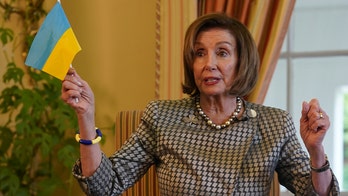Haiti's the focus now, a day-by-day test of American ability to help earthquake victims survive, receive medical care and food and, eventually, begin to rebuild.
President Obama's immediate and muscular response in Haiti has won bi-partisan praise, a rarity after one year of his foreign policy maneuvers.
"I think the administration has done the right thing," said former US Ambassador to the United Nations John Bolton, second only to former Vice President Cheney in his criticism of Obama's foreign policy. "I think America should take the lead in the relief effort in Haiti. I don't think this is a political issue, I think this is a reflection of American generosity."
Like other Republicans, Bolton also praises, albeit sparingly, Obama's decision to send an additional 30,000 US combat troops to Afghanistan to fight a resurgent, daring and ever-more lethal Taliban insurgency (Monday's synchronized attacks in Kabul are said to have sent shock waves of fear through the populace).
What Republicans like Bolton and Cheney cannot abide, however, is Obama's announcement those troops will begin withdrawing in July 2011.
"His desire for an early commencement of withdrawal of American forces sent a very bad signal," Bolton said.
While Bolton sees the soft withdrawal date (it's when draw downs are to begin but there's no troop number tied to them), as a sign of weakness, former 9-11 Commission Co-Chairman Lee Hamilton sees strength in Obama's Afghanistan policy.
"He's using a lot more force in Afghanistan than President Bush did," Hamilton said, even as he cautioned he's not particularly bullish on Obama's prospects for success there. "Afghanistan is going to be a long, tough slog. And Pakistan remains very, very difficult for us."
Beyond Afghanistan, Obama's biggest departure from the Bush administration has been a policy of engagement, one that's produced no results with Iran, limited ones with Russia and a new set of sanctions against North Korea.
But even in the face of sanctions and the first face-to-face negotiations with the U.S. North Korea's belligerence has only intensified.
"The fact of the matter is there have been no major achievements," Hamilton said. "There haven't been any major defeats. He has repositioned America. Tests are still ahead of him."
On Iran, the results appear particularly meager. Iran's ruling theocracy, in the middle of political tumult at home, have ignored Obama's repeated requests to engage on the future of its nuclear programs. After a year of patience and olive branches, Obama's won only mild endorsements from Russia on future unspecified sanctions. China appears as stubbornly opposed as ever.
Jon Alterman, foreign policy expert at the Center for Strategic and International Studies, predicts significant problems for Obama with Iran and China, ones that will likely come to a head over the nuclear issue.
"What we're seeing in Iran is the beginning of a series of potential challenges from China that's actually more important than narrowly what happens on the Iran negotiations," Alterman said. "Are we going to have China as a responsible partner or is China going to be cheating and undermining?"
Alterman says China's now actively ignoring U.S. efforts to explore sanctions against Iran. The White House said it would move to the sanctions "track" of it's two track (diplomacy being "track" one) after giving a year of engagement a try. Those efforts have yet to get off the ground, in large measure because of China's recalcitrance. Alterman sees structural problems for Obama here.
"If that's the kind of world we're in where the leaders of the world can't act together to deal with threats, then you have a much different role for China, a much different role for the United States," Alterman said. "That casts the way the world works differently, and that's something not that the Obama administration is doing, that's something the Chinese are doing. And it's going to be a fundamental, strategic problem."
Obama's also tried to shift perceptions by acknowledging what he described as previous American missteps on military, economic and environmental policy. Critics call this apology-mongering.
"In case after case, it's not just the apologies that make a difference, it's the overall weakness and decline in defending American interests," Bolton says.
Hamilton, who endorsed Obama in the primaries, such criticism betrays a misguided nostalgia for the early George W. Bush years.
"I've looked at his words pretty carefully and I don't see what the conservatives say are outright apologies," Hamilton said. "I think he is defining American interests more carefully. He's not making extravagant claims about what America can do. What are the options? The options are to bombs away. I don't think many people think that's a very good option. Talking is better than fighting. It's better to jaw jaw jaw than to war war war said (former British Prime Minister Winston) Churchill. That's pretty good advice."
The Middle East peace process has all but collapsed, in part because of the relative weakness of the Israeli and Palestinian governments. But Obama's failed confrontation with Israeli Prime Minister Benjamin Netanyahu over new settlements has diminished his stature among Arabs and aggravated the Jewish state.
"At the moment at least its pretty hard to see even the light at the end of the tunnel," Hamilton said.
Obama's also got his eye on Yemen and potential emerging terrorists threats in Somalia and Djibouti across the Gulf of Aden. Through all of this, it's easy to forget Obama is also trying to successfully wind down Bush's war in Iraq. With national elections scheduled for February and sizable US troops withdrawals to commence steadily after that, Obama will have to manage what comes next -- knowing he'll have almost no political capital to extend the U.S. mission if security falls apart
"It all depends what your expectations for Iraq are," Alterman said. "If you expect Iraq to be a city on a hill and an inspiration to the Middle East, I'm very pessimistic about Iraq. If the possibility is Iraq is going to break apart, become another Somalia, become a sort of a nest of threats against the US, I don't think that's going to happen. Iraq is really going to be somewhere in between."




